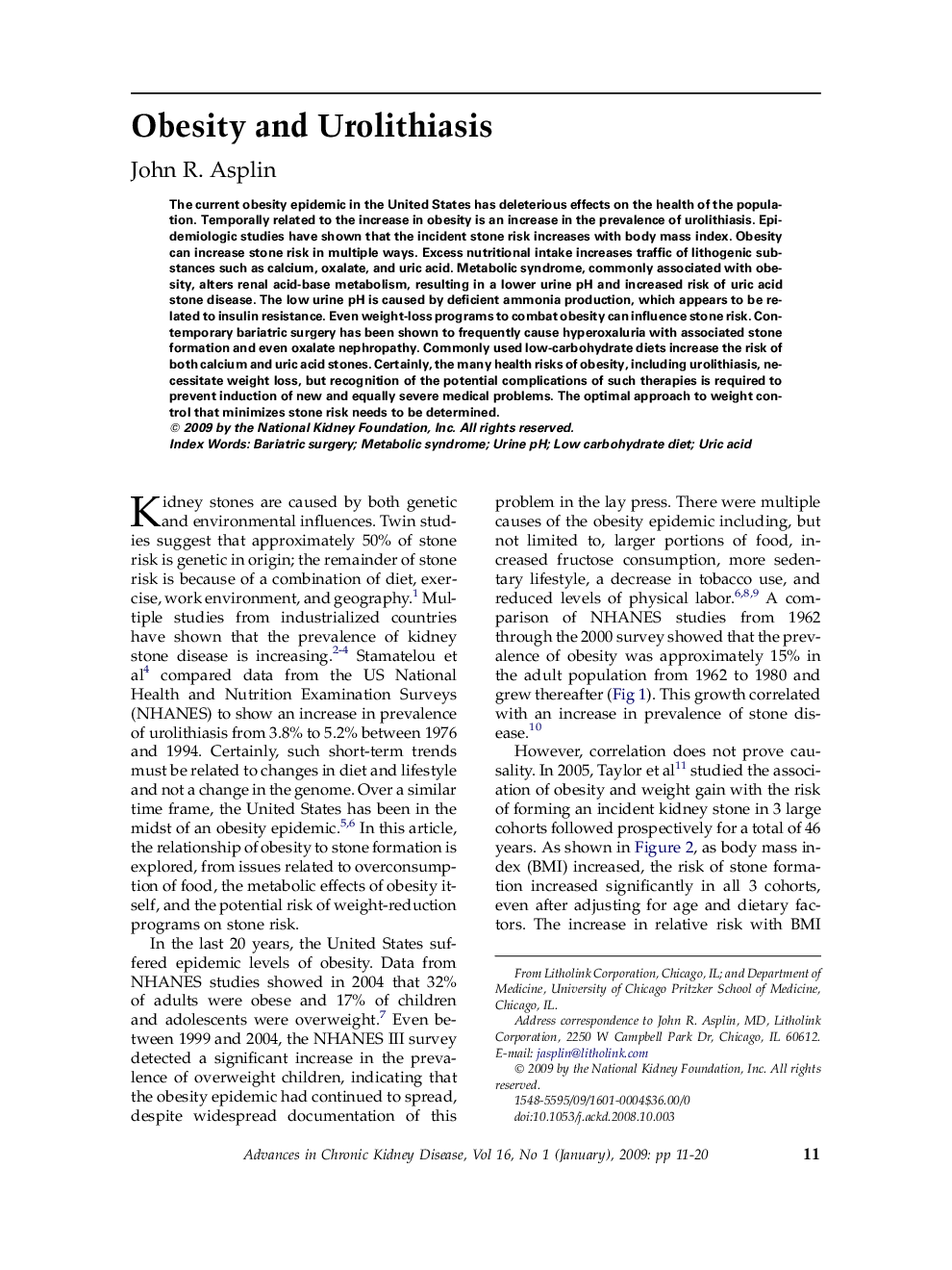| کد مقاله | کد نشریه | سال انتشار | مقاله انگلیسی | نسخه تمام متن |
|---|---|---|---|---|
| 3847269 | 1248372 | 2009 | 10 صفحه PDF | دانلود رایگان |
عنوان انگلیسی مقاله ISI
Obesity and Urolithiasis
دانلود مقاله + سفارش ترجمه
دانلود مقاله ISI انگلیسی
رایگان برای ایرانیان
کلمات کلیدی
موضوعات مرتبط
علوم پزشکی و سلامت
پزشکی و دندانپزشکی
بیماریهای کلیوی
پیش نمایش صفحه اول مقاله

چکیده انگلیسی
The current obesity epidemic in the United States has deleterious effects on the health of the population. Temporally related to the increase in obesity is an increase in the prevalence of urolithiasis. Epidemiologic studies have shown that the incident stone risk increases with body mass index. Obesity can increase stone risk in multiple ways. Excess nutritional intake increases traffic of lithogenic substances such as calcium, oxalate, and uric acid. Metabolic syndrome, commonly associated with obesity, alters renal acid-base metabolism, resulting in a lower urine pH and increased risk of uric acid stone disease. The low urine pH is caused by deficient ammonia production, which appears to be related to insulin resistance. Even weight-loss programs to combat obesity can influence stone risk. Contemporary bariatric surgery has been shown to frequently cause hyperoxaluria with associated stone formation and even oxalate nephropathy. Commonly used low-carbohydrate diets increase the risk of both calcium and uric acid stones. Certainly, the many health risks of obesity, including urolithiasis, necessitate weight loss, but recognition of the potential complications of such therapies is required to prevent induction of new and equally severe medical problems. The optimal approach to weight control that minimizes stone risk needs to be determined.
ناشر
Database: Elsevier - ScienceDirect (ساینس دایرکت)
Journal: Advances in Chronic Kidney Disease - Volume 16, Issue 1, January 2009, Pages 11-20
Journal: Advances in Chronic Kidney Disease - Volume 16, Issue 1, January 2009, Pages 11-20
نویسندگان
John R. Asplin,